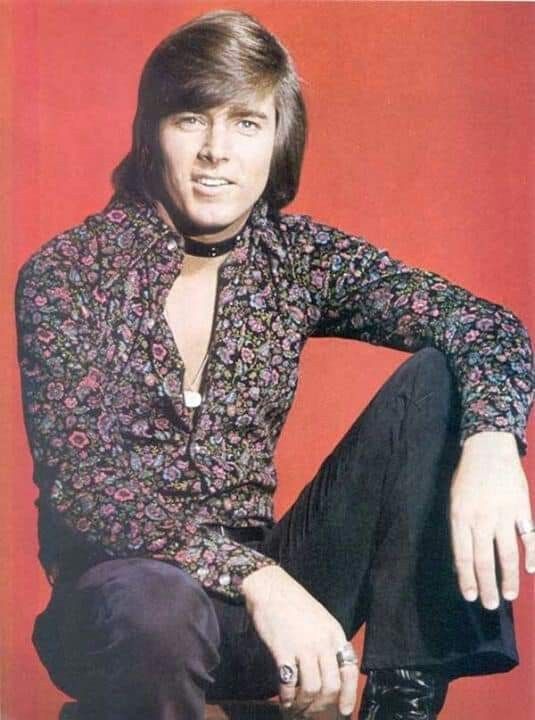
A Rhythmic Heartbeat of Lost Love and Lingering Hope
Ah, the 1960s. A time of tumultuous change, vibrant counter-culture, and pop music that, for many of us, became the very soundtrack to our formative years. And among the teen idols who graced our television screens and record players, few shone as brightly, or as innocently, as Bobby Sherman. For a certain generation, his face was on every magazine cover, his voice echoing from every transistor radio, and his songs were the anthems of youthful crushes and tender heartbreaks. Today, we’re going to cast our minds back to one such melody, a song that, despite its seemingly simple construct, resonated deeply with millions: “The Drum.”
Released in 1971, “The Drum” arrived on the music scene at a moment when the optimism of the late sixties was beginning to wane, replaced by a more introspective and, at times, melancholic mood. Yet, Bobby Sherman continued to offer a comforting presence, a familiar voice in a world that was rapidly evolving. And the charts reflected his enduring appeal. “The Drum” proved to be a significant hit for him, drumming its way up to a respectable No. 29 on the prestigious Billboard Hot 100 chart. It was a testament not only to his enduring popularity but also to the song’s immediate connection with listeners. For those of us who were young adults or even teenagers at the time, seeing Bobby Sherman on the charts was as natural as breathing. He was a constant, a reassuring presence in the ever-shifting landscape of pop music.
But what was it about “The Drum” that allowed it to beat its way into our hearts? The story behind the song is a poignant one, a narrative that many of us can relate to on some level. Written by Alan Gordon, a prolific songwriter known for his work with The Turtles, among others, “The Drum” tells a story of separation and longing through a deceptively simple metaphor. It speaks of a love that has gone away, leaving behind a persistent, almost maddening, echo – the sound of a drum that won’t stop beating. This drum isn’t a literal instrument; rather, it’s the persistent, almost relentless, memory of the lost love, a sound that reverberates in the protagonist’s mind and soul.
The genius of “The Drum” lies in its ability to evoke a universal feeling of absence and the enduring impact of a past relationship. It’s about that person who, even after they’ve left, continues to occupy a significant space in your thoughts, their presence felt through the lingering memories and the phantom ache of their absence. The drumbeat, in this context, becomes a metaphor for the relentless passage of time, each beat a reminder of what once was and what can no longer be. It’s the echo of laughter, the ghost of a touch, the phantom scent of a perfume – all coalescing into this incessant, internal rhythm.
For many older readers, this song isn’t just a pop tune; it’s a time capsule. It transports us back to a period when perhaps we ourselves were experiencing similar heartaches. Maybe it was a first love that ended, a friendship that drifted apart, or simply the bittersweet realization that some chapters of our lives were closing. The simplicity of Bobby Sherman’s delivery, earnest and heartfelt, only amplified the song’s emotional resonance. He wasn’t a powerhouse vocalist, but his charm and sincerity allowed him to convey a sense of vulnerability that truly connected with his audience. His voice, in “The Drum,” becomes a gentle lament, a quiet yearning for what’s been lost.
Furthermore, “The Drum” was a staple on countless radio stations, its catchy melody and memorable chorus making it an earworm long before the term was even coined. It was a song you’d hear at school dances, at the roller rink, or simply while cruising in your car with the windows down on a warm summer evening. It became part of the fabric of our everyday lives, subtly weaving itself into our personal narratives. It wasn’t about complex musical arrangements or groundbreaking lyrical prose; it was about an honest, relatable emotion delivered with sincerity. And that, for many of us, was more than enough. It was a song that understood us, even if we didn’t fully understand ourselves at the time. It spoke to the universal human experience of loving and losing, of remembering and longing, all wrapped up in a simple, unforgettable rhythm.